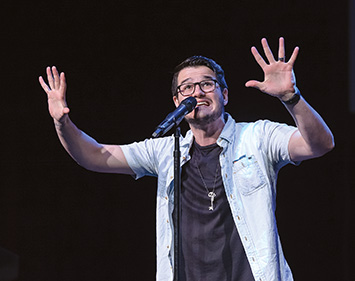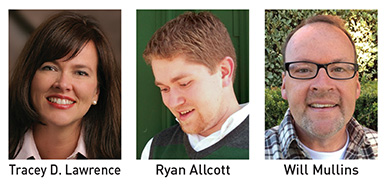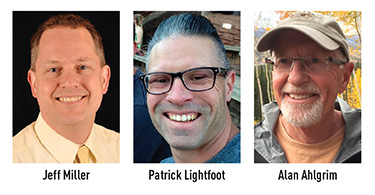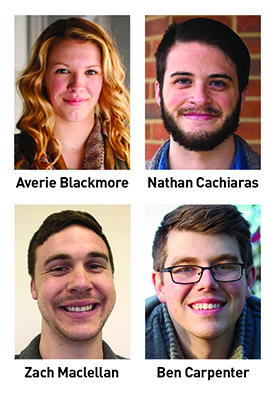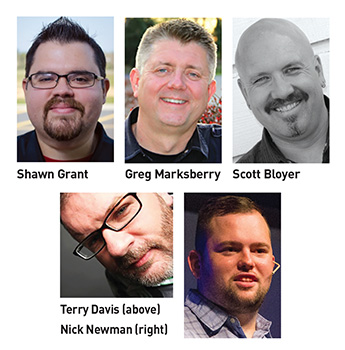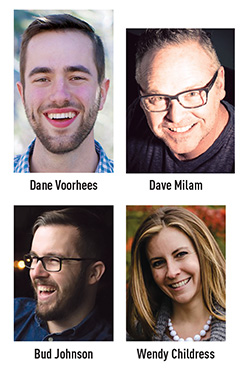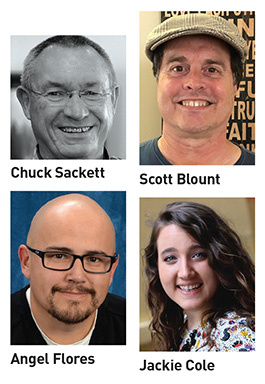By Daniel Overdorf
Stories abound of preachers and plagiarism.
Some are funny: “When Chuck Swindoll starts preaching better sermons, so will I!” Or, “If I use one source, it’s plagiarism; if I use two sources, it’s research.”
![200297863-001]() Other stories, though, are heartbreaking. Churches have fired ministers for preaching sermons downloaded from the Internet. Other preachers have kept their jobs but split their churches—half their members not wanting to serve with a leader they feel has broken a bond of trust.
Other stories, though, are heartbreaking. Churches have fired ministers for preaching sermons downloaded from the Internet. Other preachers have kept their jobs but split their churches—half their members not wanting to serve with a leader they feel has broken a bond of trust.
Plagiarism is using someone else’s material without giving credit. And it tempts even the most faithful of us.
The temptation might stem from a lack of confidence—we worry our own creations aren’t good enough.
Or, the temptation might rise from pride—we want our listeners to think we are intelligent, thoughtful, and creative, thus our egos hesitate to credit others when we borrow insightful material.
Some preachers fail to control their schedules, and the nearer Sunday looms, the more the Internet lures with its vast storehouse of sermons.
Others simply choose laziness over diligent study and preparation.
For these reasons and more, plagiarism plagues and weakens today’s pulpit.
Before we cancel our subscriptions to PreachingToday.com, however, or empty our bookshelves of all resources other than our Bibles and notepads, we should acknowledge that the same resources that tempt us to plagiarize can provide valuable insights and guidance that improve our sermons. My spiritual journey and my understanding of Scripture have benefited from numerous others—from Augustine to A.W. Tozer, N.T. Wright, Ben Witherington, Craig Blomberg, and Walter Brueggemann. My approach to preaching—and sometimes to the preaching of particular texts—has benefited from John Chrysostom, Fred Craddock, Haddon Robinson, Timothy Keller, Tom Long, and Bob Russell.
Should I ignore these voices when I prepare a sermon? Should I disregard the insight and wisdom of others who have gone before? Does everything I say in the pulpit have to be completely original?
How do faithful preachers—those who stand before God and their congregations with homiletical integrity—navigate the tricky terrain between research and plagiarism?
Convictions
Certain convictions guide our discussion of research, plagiarism, and the pulpit.
• Convictions about preaching
Preaching involves God speaking his Word through his person to his people.
If this statement is true, then we as preachers must begin by allowing God to speak his Word. Preachers who copy sermons from the Internet or book chapters rob themselves and their listeners of Spirit-led study and saturation of Scripture.
Furthermore, God relates his truth through a particular person—the preacher. God uses the preacher’s own personality, experiences, and voice. God proclaims his truth through Andy Stanley differently than he proclaims his truth through you or me. To stand in the pulpit and simply recite what Stanley preached, therefore, circumvents how God intends to use our voices.
Moreover, we relate God’s truth to a particular people. Tom Long often says to preachers, “You are the only person in the world with one foot in this particular text and one foot in your particular congregation.” A sermon delivered by a different preacher to a different congregation will not communicate as specifically or as effectively as the sermons we prepare for the unique communities where we live, minister, and shepherd.
• Convictions about honesty
If we say something—in the pulpit or in conversation—those listening assume the words are our own unless we tell them otherwise. Therefore, if we repeat something we read or heard elsewhere without attributing that source, we mislead our listeners. We imply the words were our own when they weren’t.
This conviction has nothing to do with copyright laws (“I didn’t sell it or make money off of it”) or even getting permission from the source (“He said I could preach his sermon”). It has to do with honesty before our listeners and honoring the trust they place in us.
Solution
The solution to plagiarism is simple: if we use a direct quote, personal story, or an original idea from someone else, we need to say so. No sin lies in research or in using borrowed ideas. The lapse of integrity rests in a refusal to credit our sources.
If we use particular, uniquely stated words from someone else, we need to give credit. For example, Corrie ten Boom said, “Never be afraid to trust an unknown future to a known God.” If we use this sentence in a sermon, integrity demands that we preface them with “Corrie ten Boom said . . .”
Also, if we use someone else’s personal story, we need to attribute the story to that person. Perhaps Bill Hybels described a conversation he shared with someone at his gym, and that conversation would provide a helpful illustration for my sermon. Honesty demands that I begin the story, “Bill Hybels tells of a conversation he had . . .”
rather than “When I was at the gym the other day. . . .” Don’t say it happened to you if it didn’t.
Additionally, if we borrow an outline or particular approach to a sermon from another preacher or writer, integrity requires that we give credit. For example, we might say, “In a sermon on this same passage, John Stott offered four insights that will guide our discussion today.” Or, “In one of his books, Will Willimon applied this passage to three arenas of life.”
We do not need references for matters of common knowledge—the distance from Jerusalem to Bethlehem, for example. We do not need citations for sayings that are a part of common vernacular (“Give a man a fish, feed him for a day . . .”),
nor for observations about a text that multiple people might easily make (“The term spirit occurs 16 times in Romans 8”).
In some cases, if the borrowed idea is brief and the source not commonly known, a simple “One scholar noted . . .” can suffice. These simple words tell our listeners the idea is not our own and maintains our integrity before them. People will not think less of us for offering such acknowledgments. In fact, they will likely appreciate that we research.
Suggestions
• First, study the text.
The enticement to plagiarize magnifies when we begin our sermon preparation by reading what others wrote or preached about our text. This approach tempts us to simply use their material instead of grappling with the text ourselves. Wrestle with the text first, define what you believe the text teaches, and consider how you might preach it. Then, affirm your conclusions and spark your sermonic creativity through others’ work.
• Read widely.
Don’t let a fear of plagiarism or a desire for originality prevent you from learning from others. God has blessed the church with insightful scholars, writers, and preachers; learn from them. Let their ideas influence you and your sermons. Just credit them when you use their material.
• Cite, but briefly.
We do not need to give full bibliographic information in our sermons. Instead, a simple “Billy Graham said” or “Frances Chan wrote” usually suffices.
Frequently Asked Questions
Can’t I just cite the source in my notes?
A sermon is an oral event, not a term paper. Therefore, the citation needs to be made orally.
If it’s all for God’s glory, why not use someone else’s material?
When we rely too much on others’ material, we circumvent the work God wants to perform in us and in our particular congregations. Beware, therefore, of overreliance on what others have written or preached. When you believe a few phrases or ideas from someone else will advance what God intends to accomplish in your particular congregation, however, use them. Just credit your sources.
What if I have permission from the preacher/writer?
Permission and citation are separate issues. Permission maintains integrity between the preacher and source. Citation maintains integrity between the preacher and source, and between the preacher and listeners. Remember, people assume our words are our own unless we tell them otherwise. When our words come from others, therefore, we either cite our sources or we deceive our listeners.
Aren’t citations in a sermon cumbersome?
A simple “John Ortberg explained” takes 0.9 seconds (I timed it, and I have a Southern drawl!). Nine-tenths of a second is a small price for trust and integrity.
Preachers, let’s jettison our egos, flush our excuses, and preach with integrity. The honor of the pulpit demands it.
Daniel Overdorf serves as dean of the School of Congregational Ministry and professor of preaching at Johnson University, Knoxville, Tennessee.
________
What About Video?
Jesus ministered in a culture saturated with oral storytelling. Thus, he told stories. He painted verbal pictures of kings and judges, widows and farmers, mustard seeds, wedding parties, rebellious children, and loving fathers. His stories—relevant to his culture both in content and presentation—revealed eternal truth.
Story carries the same power today that it carried in the first century and every century since. Today’s storytellers, however, have additional options for portraying stories. Most notably, they can portray truth on film. An increasing number of preachers use video illustrations in their sermons.
To use video illustrations with integrity, consider:
• We must acquire legal permission before showing clips from copyrighted productions. In other words, I cannot take a DVD of the movie Hoosiers from my shelf and show a clip in a sermon or even to a youth group unless I get legal permission.
• I might think, I bought it, it’s mine; I can show it wherever I want. The reality, however, is I did not buy “it” (e.g., Hoosiers). Hoosiers is owned by a production company. I bought a copy of the movie and the right to show that copy only in private settings, such as my home.
• Services such as Christian Video Licensing International (cvli.com) provide a blanket license that allows churches to show clips from thousands of titles from hundreds of producers. The license requires a fee based on church size. The Motion Picture Licensing Corporation (mplc.org) provides additional options.
• Websites such as wingclips.com, sermonspice.com, and bluefishtv.com provide individual clips for purchase. In these cases, with the purchase comes the legal rights to show the clip.
—Adapted from “Illustrate with Video” in One Year to Better Preaching: Fifty-Two Exercises to Hone Your Skills, by Daniel Overdorf (Kregel Publications, 2013).
 Daniel Overdorf shares his enthusiasm for training Christian workers and comments on how the church and the college can tap each others’ best to do a better job of equipping Christian leaders. This preaching professor also talks about how preaching has changed—not only for good—and how it needs to change.
Daniel Overdorf shares his enthusiasm for training Christian workers and comments on how the church and the college can tap each others’ best to do a better job of equipping Christian leaders. This preaching professor also talks about how preaching has changed—not only for good—and how it needs to change.




